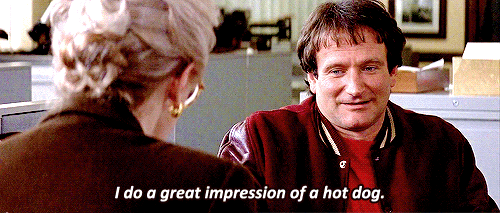Things you shouldn’t do (or say) in a job interview

Good job interview etiquette takes a lot of real-life practice – unless you’re one of the lucky ones for whom it comes completely naturally. You might even enjoy it. But the rest of us really don’t; most inexperienced interviewees will turn up 45 minutes too early, trying to hide the shaky hands without a clue what they’re going to say (despite having committed a thousand possible questions and responses to memory). So to give you the best chance, here’s a few things you really shouldn’t say when you’re actually in the seat.
Of course – you’re a perfectionist
Shudder. If you’ve ever said this in front of someone, it’s probably because you think it’s a sure-fire way to make your prospective employer believe you couldn’t possibly do a bad job. But you’d definitely be making a mistake. Aside from being clichéd and “the oldest trick in the book”, your interviewer could actually interpret this as “I’ve got borderline OCD and it’ll take me forever to churn through work and make decisions”.

"I’m leaving my current job because [insert every reason you hate it]."
Unfortunately, everything you have to complain about your current job might be justified and it might even be your most honest answer. But in reality, there’s too much risk that this sort of response will just reflect badly upon you. “The people are difficult to get along with”; that means you’re not a team-player. Or, “They’ve made so many crazy decisions” might translate to: you’re obstructive and don’t have a can-do attitude. You get the gist here. Leave this one out.
"I don’t have any questions."
You must! If you’ve even done the slightest bit of research about the company you’re interviewing for, it will raise questions. No job or organisation is that straightforward. By failing to ask a question it gives an impression that you haven’t done your research, you probably don’t have much activity going on upstairs or it might even give the impression you’re just not that interested.
"I’m up for anything."
This might be true, but don’t say it out loud. Yes, the interviewer will be scoping people out for a degree of flexibility, but that doesn’t mean they’ll want to see you trade in everything you’ve worked for the chance to wipe down toilet cubicles in their organisation. They’ll also want to believe that you’re committed to your passions and believe in your own abilities.

Going off on a tangent with a long, irrelevant story
The question usually starts like this: “Tell us about a time when…” It puts you on the spot, but the worst thing you can do is start rambling on your most adventurous moment in life just for the sake of making an impact. Well – not if it bears no connection to the question you’re being asked. Resist the temptation and don’t be afraid to tell a more modest story that directly responds to what has been asked.
Image: Giphy